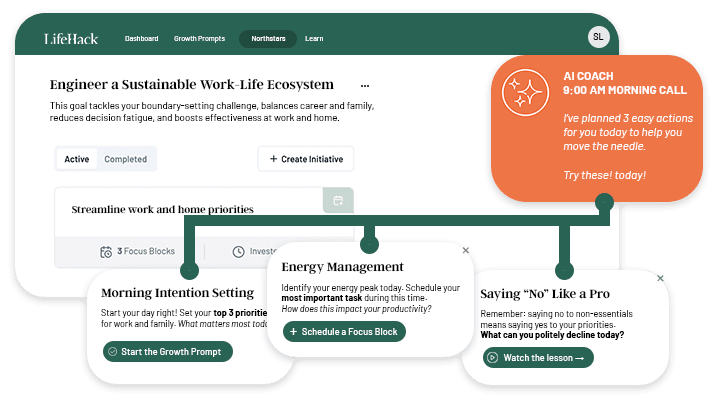After a few months of hard work and dozens of phone calls later, you finally land a job opportunity.
But then, you’re asked about your salary requirements and your mind goes blank. So, you offer a lower salary believing this will increase your odds at getting hired.
Unfortunately, this is the wrong approach.
Your salary requirements can make or break your odds at getting hired. But only if you’re not prepared.
Ask for a salary too high with no room for negotiation and your potential employer will not be able to afford you. Aim too low and employers will perceive as you offering low value. The trick is to aim as high as possible while keeping both parties feel happy.
Of course, you can’t command a high price without bringing value.
The good news is that learning how to be a high-value employee is possible. You have to work on the right tasks to grow in the right areas. Here are a few tactics to negotiate your salary requirements with confidence.
1. Hack time to accomplish more than most
Do you want to get paid well for your hard work? Of course you do. I hate to break it to you, but so do most people.
With so much competition, this won’t be an easy task to achieve. That’s why you need to become a pro at time management.
Do you know how much free time you have? Not the free time during your lunch break or after you’ve finished working at your day job. Rather, the free time when you’re looking at your phone or watching your favorite TV show.
Data from 2017 shows that Americans spend roughly 3 hours watching TV. This is time poorly spent if you’re not happy with your current lifestyle. Instead, focus on working on your goals whenever you have free time.
For example, if your commute to/from work is 1 hour, listen to an educational Podcast. If your lunch break is 30 minutes, read for 10 to 15 minutes. And if you have a busy life with only 30–60 minutes to spare after work, use this time to work on your personal goals.
Create a morning routine that will set you up for success every day. Start waking up 1 to 2 hours earlier to have more time to work on your most important tasks. Use tools like ATracker to break down which activities you’re spending the most time in.
It won’t be easy to analyze your entire day, so set boundaries. For example, if you have 4 hours of free time each day, spend at least 2 of these hours working on important tasks.
2. Set your own boundaries
Having a successful career isn’t always about the money. According to Gallup, about 70% of employees aren’t satisfied with their current jobs.[1]
Earning more money isn’t a bad thing, but choosing a higher salary over the traits that are the most important to you is. For example, if you enjoy spending time with your family, reject job offers requiring a lot of travel.
Here are some important traits to consider:
- Work and life balance – The last thing you’d want is a job that forces you to work 60+ hours each week. Unless this is the type of environment you’d want. Understand how your potential employer emphasizes work/life balance.
- Self-development opportunities – Having the option to grow within your company is important. Once you learn how to do your tasks well, you’ll start becoming less engaged. Choose a company that encourages employee growth.
- Company culture – The stereotypical cubicle job where one feels miserable doesn’t have to be your fate. Not all companies are equal in culture. Take, for example, Google, who invests heavily in keeping their employees happy.[2]
Unlock Your Time Potential: From Chaos to Control
Discover how to reclaim your time and transform chaos into productivity with our comprehensive Time/Life Assessment.
If you're ready to take control of your time and boost your efficiency, don't miss this opportunity to get a personalized analysis and action plan.

These are some of the most important traits to look for in a company, but there are others. Make it your mission to rank which traits are important to you. This way you’ll stop applying to the wrong companies and stay focused on what matters to you more.
3. Continuously invest in yourself
Investing in yourself is the best investment you can make. Cliche I know, but true nonetheless.
You’ll grow as a person and gain confidence with the value you’ll be able to bring to others. Investing in yourself doesn’t have to be expensive. For example, you can read books to expand your knowledge in different fields.
Don’t get stuck into the habit of reading without a purpose. Instead, choose books that will help you expand in a field you’re looking to grow. At the same time, don’t limit yourself to reading books in one subject–create a healthy balance.
Podcasts are also a great medium to learn new subjects from experts in different fields. The best part is they’re free and you can consume them on your commute to/from work.
Paid education makes sense if you have little to no debt. If you decide to go back to school, be sure to apply for scholarships and grants to have the least amount of debt. Regardless of which route you take to make it a habit to grow every day.
It won’t be easy, but this will work to your advantage. Most people won’t spend most of their free time investing in themselves. This will allow you to grow faster than most, and stand out from your competition.
4. Document the value you bring
Resumes are a common way companies filter employees through the hiring process. Here’s the big secret: It’s not the only way you can showcase your skills.
To request for a higher salary than most, you have to do what most are unwilling to do. Since you’re already investing in yourself, make it a habit to showcase your skills online.
A great way to do this is to create your own website. Pick your first and last name as your domain name. If this domain is already taken, get creative and choose one that makes sense.
Here are some ideas:
- joesmith.com
- joeasmith.com
- joesmithprojects.com
Nowadays, building a website is easy. Once you have your website setup, begin producing content. For example, if you a developer you can post the applications you’re building.
During your interviews, you’ll have an online reference to showcase your accomplishments. You can use your accomplishments to justify your salary requirements. Since most people don’t do this, you’ll have a higher chance of employers accepting your offer
5. Hide your salary requirements
Avoid giving you salary requirements early in the interview process.
But if you get asked early, deflect this question in a non-defensive manner. Explain to the employer that you’d like to understand your role better first. They’ll most likely agree with you; but if they don’t, give them a range.
The truth is great employers are more concerned about your skills and the value you bring to the company. They understand that a great employee is an investment, able to earn them more than their salary.
Remember that a job interview isn’t only for the employer, it’s also for you. If the employer is more interested in your salary requirements, this may not be a good sign. Use this question to gauge if the company you’re interviewing is worth working for.
6. Do just enough research
Research average salary compensation in your industry, then wing it.
Use tools like Glassdoor to research the average salary compensation for your industry. Then leverage LinkedIn’s company data that’s provided with its Pro membership. You can view a company’s employee growth and the total number of job openings.
Use this information to make informed decisions when deciding on your salary requirements. But don’t limit yourself to the average salary range. Companies will usually pay you more for the value you have.
Big companies will often pay more than smaller ones.[3] Whatever your desired salary amount is, always ask for a higher amount. Employers will often reject your initial offer. In fact, offer a salary range that’ll give you and your employer enough room to negotiate.
7. Get compensated by your value
Asking for the salary you deserve is an art. On one end, you have to constantly invest in yourself to offer massive value. But this isn’t enough. You also have to become a great negotiator.
Imagine requesting a high salary and because you bring a lot of value, employers are willing to pay you this. Wouldn’t this be amazing?
Most settle for average because they’re not confident with what they have to offer. Most don’t invest in themselves because they’re not dedicated enough. But not you.
You know you deserve to get paid well, and you’re willing to put in the work. Yet, you won’t sacrifice your most important values over a higher salary.
The bottom line
You’ve got what it takes to succeed in your career. Invest in yourself, learn how to negotiate, and do research. The next time you’re asked about your salary requirements, you won’t fumble.
You’ll showcase your skills with confidence and get the salary you deserve. What’s holding you back now?
Featured photo credit: LinkedIn Sales Navigator via unsplash.com
Ready for a Goal Breakthrough? Unlock Your Personalized Strategy

Experience the power of a strategy tailored just for you.
Our personalized system provides:
- Custom-crafted action steps based on your unique situation
- Insights tailored to your specific challenges and strengths
- A personalized roadmap to turn your goals into reality
Tailored recommendations powered by smart analysis
Reference
| [1] | ^ | Gallup: Worldwide, 13% of Employees Are Engaged at Work |
| [2] | ^ | Neil Patel: Inside Google’s Culture of Success and Employee Happiness |
| [3] | ^ | CNBC: The 25 highest-paying companies in America |















































